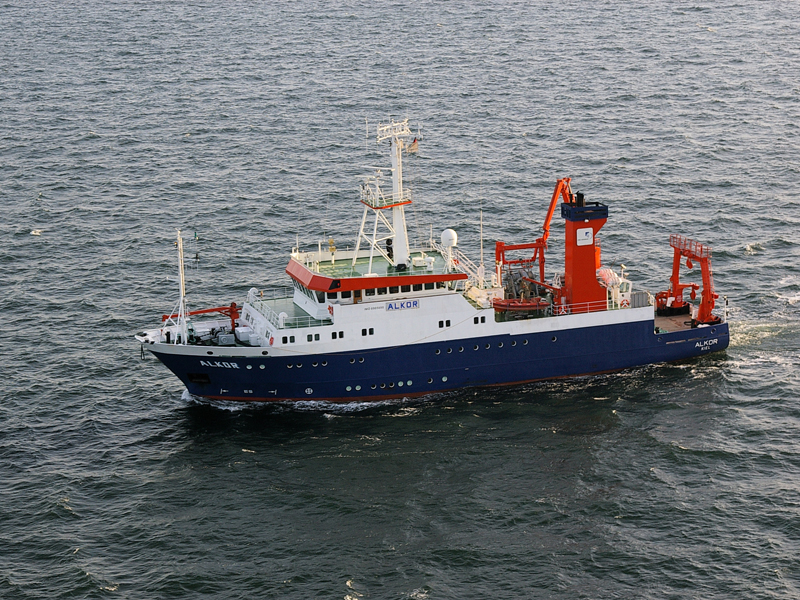ALKOR AL371
- Area:
- Ostsee
- Time:
-
08.04.2011 - 21.04.2011
- Institution:
- IFM-GEOMAR
- Chief scientist:
- Hans-Harald Hinrichsen
The aim of the 371st expedition of the German research vessel ALKOR (8 April – 21 April 2011) is to deliver samples and data from the Baltic Sea for six scientific projects: 1) AQUASHIFT RECONN 2. The main research focus is to develop a more general picture of the influence of climatic processes on Baltic sprat population development. 2) CAVIAR. This is joint Danish/German research project which aims at a detailed analysis of the climate variability of the Baltic Sea area and to investigate its impact on bio/physical processes in the central Baltic Sea. 3) EPOCA (European Project on OCean Acidification). The overall goal of this EU FP7 Integrated Project is to advance our understanding of the biological, ecological, biogeochemical, and societal implications of ocean acidification. Within EPOCA it is planned to investigate the impact of ocean acidification on the performance, reproduction and growth in marine organisms. One of the key species in this study is the Baltic cod, Gadus morhua, which will be obtained during the cruises with the RV ALKOR. EPOCA will be augmented three BMBF Projects BIOACID in which three members of our group (Dr. Catriona Clemmesen, Dr. Uwe Piatkowski, Prof. Thorsten Reusch) are involved. 4) The DFG-Mnemiopsis-Project focuses on the comb jelly Mnemiopsis leidyi (Ctenophora) which recently invaded North- and Baltic Sea. We are then interested in processes enhancing adaptive evolution, which would exacerbate the impact that M. leidyi has on native fish populations. We test the hypothesis that the invading population is genetically less diverse than the source, while older invaded areas such as Caspian/Black Sea reveal intermediate levels. 5) The EU project CalMarO comprises investigation of calcareous structures as well as calcification processes and the sensitivities to changes in environmental conditions at all scales. At the same time CalMarO acts as initial training network to improve the career perspectives of early researchers by offering structured training in international cooperation. 6) The planned cod genome scan project addresses the question whether the gene pool of the Eastern Baltic cod has changed as a response to the regime shift, and the changing abiotic variables (e.g. temperature) observed in the central Baltic Sea.
Chief scientist of the cruise is Prof Dr Torsten Reusch of the research unit “Evolutionary Ecology of Marine Fishes” at IFM-GEOMAR



